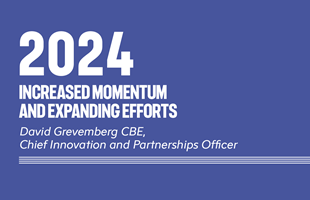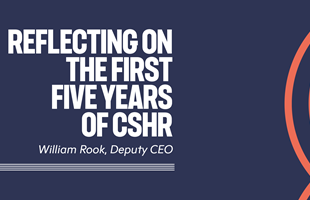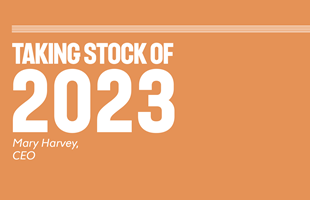Centre for Sport and Human Rights calls for actions to honour Navid Afkari
21 Sep 2020
Author - Centre for Sport and Human Rights
The execution of Iranian wrestler Navid Afkari by the government of Iran is not only a shocking and tragic development for the world of sport, but also a painful reminder of the continuing use of the death penalty today in countries around the world.
The Centre for Sport and Human Rights - as a human rights organisation for the world of sport - joins with all who believe the death penalty, and torture and other forms of cruel, inhuman and degrading treatment, are egregious violations of human rights that must end.
The treatment of Navid Afkari is not the first example of athletes being targeted and abused. In the last two years alone, examples such as Hakeem al-Araibi, the Australian/Bahraini footballer who was also detained and tortured for speaking out against human rights violations in his country; the young athletes of Afghanistan’s women’s national football team who faced sexual abuse, threats and harassment, and the youth in Haiti who face similar abuse and threats as part of their football training, are equally troubling. Abuses of this nature are not limited to athletes but extend to fans and protestors such as Najah Yusuf who was tortured for opposing the Formula One Grand Prix in Bahrain. These cases are no longer “one-offs” and the world of sport needs to be prepared to take action when - and not if- the next Hakeem, or the next Afghan women, or the next Navid Afkari case arises.
In honouring the life of Navid and all others who have faced similar treatment at the hands of political authorities, the challenge is to ensure accountability for such violations and to take actions that will help prevent future injustices. The following practical actions outline steps different actors in the world of sport should take to contribute to these aims.
For governments:
- Ensure compliance with international Human Rights standards. All governments should work to ensure a safe environment, respecting all human rights, for the world of sport to flourish in. Where there are known violations of human rights, these should be readily disclosed. States should, at all times, exercise maximum restraint when relying on existing laws or regulations to resolve differences that permit acts that have a negative human rights impact.
- End the death penalty. Now more than ever, the global community, including governments, should reaffirm a commitment to a world without the death penalty and an end to trade in goods used for torture and capital punishment.
- Hold each other accountable. Where governments are party to the same international protocols and legal frameworks, violations of these by another government should be challenged either publicly or through private diplomatic channels. Governments should work together to hold other governments accountable.
For sports governing bodies:
- Commit to respect for human rights and effective due diligence in line with the UN Guiding Principles on Human Rights. Companies and enterprises that have human rights commitments and policies in place are often better positioned for early warnings about conditions that can create human rights risk. Effective implementation of such policies will allow for timely knowledge and challenge of egregious abuses and encourage steps to mitigate these risks.
- Embed human rights standards into bidding requirements. The Sporting Chance Principles state that bidding to host a sporting event should be open to all, but human rights concerns should be a central part of the criteria used to select the winning bid. Prospective bidders should be required to acknowledge human rights risks they face, and what steps they are prepared to take in order to prevent and mitigate them – prior to the event being awarded. Failure to uphold human rights commitments made or represented as part of the bid, should be challenged by sports bodies.
- Consider and recognise how sports bodies can influence the human rights landscape. Severe human rights abuses have been reported in many sports including football, wrestling, gymnastics, swimming, figure skating, and triathlon. As individuals in sport, athletes often need to rely on the support of other athletes and the sports bodies in defending their rights. Regardless of the policies (or lack of policies) currently in place, sports bodies should consider what they would be prepared to do if the wellbeing of one (or more) of their athletes is put at risk.
For businesses involved in financing sporting events and sports bodies through sponsorship and broadcasting deals:
- Conduct adequate due diligence on sports bodies and their events. Corporate sponsors should assess the extent to which all events they currently hold sponsorship and broadcasting rights for are linked to potential adverse human rights impacts. Following this assessment, corporate sponsors should seek to enter into open communication with the beneficiaries of this sponsorship to correct/prevent these risks. Corporate sponsors could structure the sponsorship to allow an increase/reduction in sponsorship value for key human rights milestones being achieved/missed.
- Take action within your control. Where human rights risks do arise, businesses should have a pre-prepared plan for what they can do. For broadcasters, this could be talking about the human rights issues in a broadcast. For sponsors, this could be issuing a public statement condemning such violations, and/or starting processes on national or international channels (e.g. through courts or press) to challenge failures on the part of the beneficiaries of the sponsorship. Sponsors should also be vigilant in monitoring their own supply chains in order to mitigate similar risks from arising in the future. Sponsors can also act together to express concerns or advocate policy changes.
For intergovernmental organisations:
- Consider what existing processes could be strengthened to include human rights abuses in the context of sport. Intergovernmental organisations such as UN agencies have many frameworks in place to hold States accountable. These processes should consider sport. For example, the United Nations Human Rights Council Universal Periodic Review process could include examination of all countries that are due to host or are bidding to host major events and report on the extent to which the event is likely to create and/or exacerbate human rights risks in that country.
For human rights groups:
- Provide an early warning system. NGOs and civilsociety often have people on the ground in countries who can give accurate, up-to-date information on a given situation, especially where contradictory to national media. As they are best positioned to do so, with their timely support in raising alarms to issues the world of sport can maximize its opportunity to intervene effectively.
- Advocates should align their strategies addressing abuses and advocate in parliaments, the UN, and other settings for reforms.
For athletes:
- Continue to use your platform where feasible. We have seen a tremendous uptick in athlete activism over recent months and athletes should continue to develop their own unique voices and platforms. Nevertheless, speaking out is not always without professional consequences and so athletes should do what they feel comfortable with and continue to advocate for sporting environments and standards that are conducive to athletes raising their voice.



